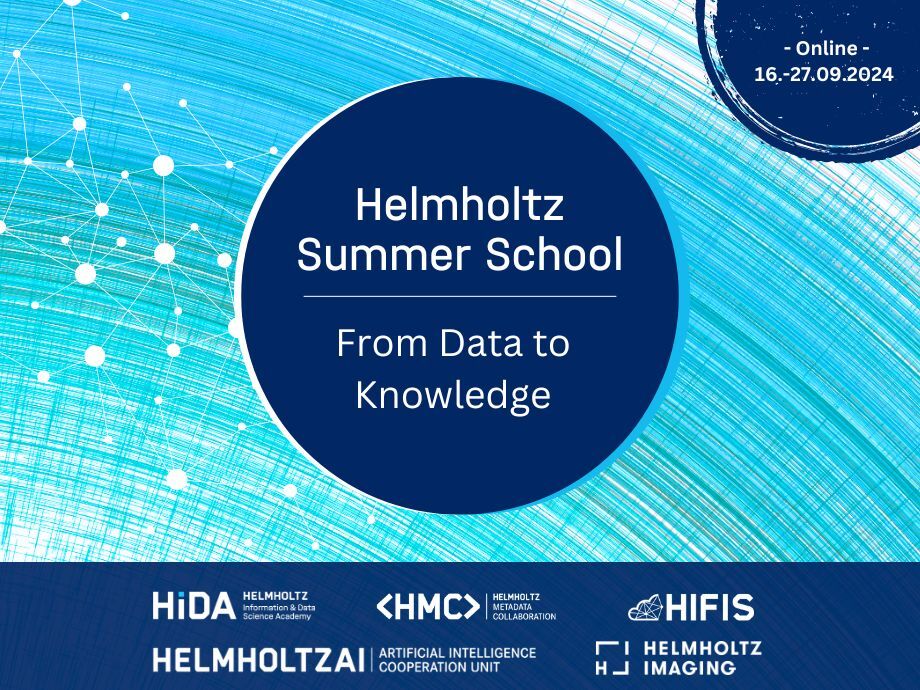- Indico style
- Indico style - inline minutes
- Indico style - numbered
- Indico style - numbered + minutes
- Indico Weeks View
Your profile timezone:

If you are looking for the third edition of our Incubator Summer Academy, you can end your search right here! As of this year, the jointly organized summer school by the five Information & Data Science platforms Helmholtz AI, Helmholtz Imaging, HIFIS, HIDA and HMC, is rebranded to the
HELMHOLTZ SUMMER SCHOOL – FROM DATA TO KNOWLEGDE.
All platforms have teamed up to design a course program that not only covers a great variety of skills, tools, and topics in the field of Information & Data Science suitable for participants with varying degrees of previous knowledge. We compiled courses and lectures and transferred them into a coordinated two-week summer school program, allowing participants to select courses that best suit their interest and experience level. An overview of the offered courses and lectures can be found here!
The Incubator Summer Academy is open to all researchers and staff in the Helmholtz Association. Additionally, a small number of seats are reserved for Master students, doctoral and postdoctoral researchers from other research institutions and universities.
Registration opens August 12 at noon and closes August 25, 2024.
Here is some information you need to know before you register.
Write us at hida-courses@helmholtz.de